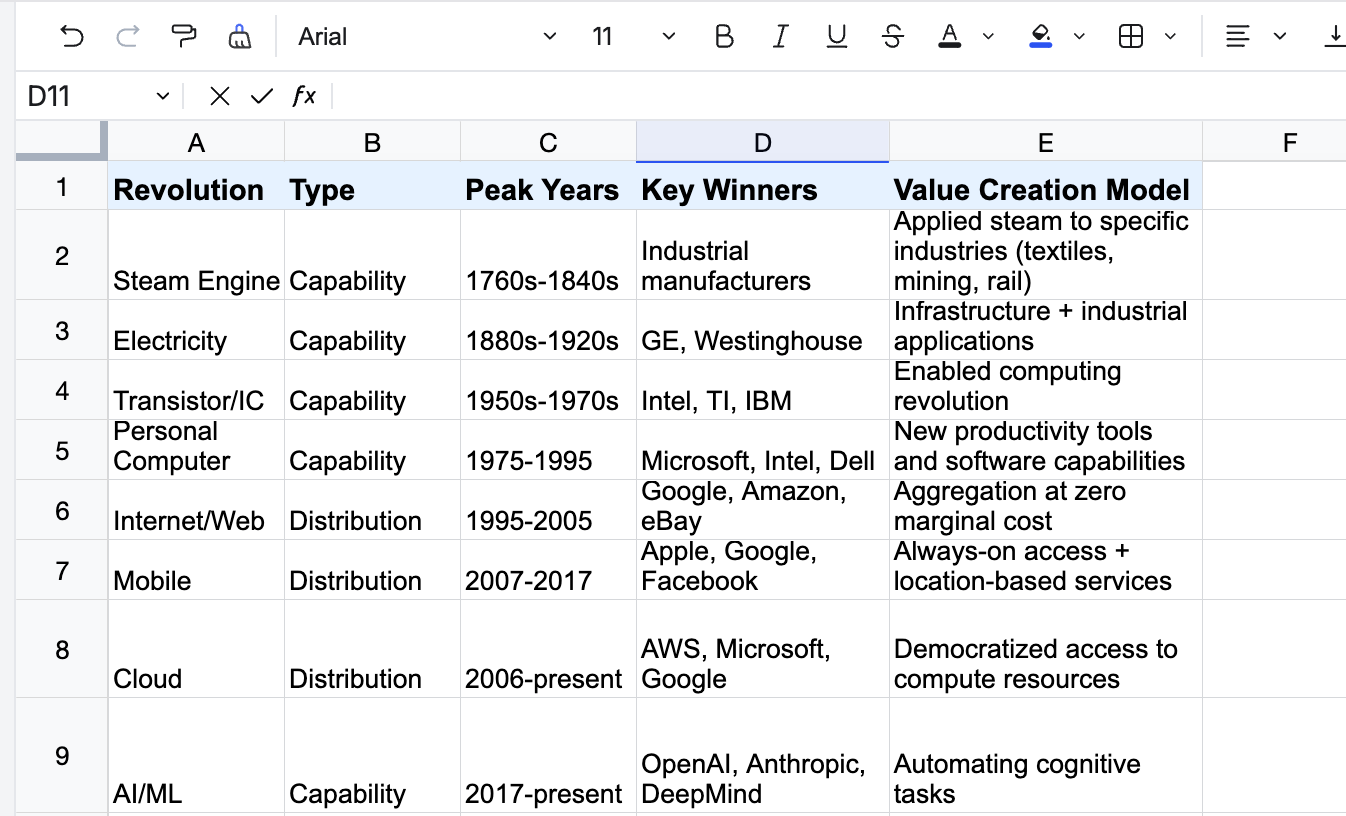Suppose you are a drug overlord. You live in Istanbul, in 1975 and sit on your desk watching the Bosphorus.
You get off the phone, hear two distinct opportunities.
The chemist
Your cousin lives in Berlin. He is a chemical genius, calls you up saying he synthesized something revolutionary. "It's like heroin but 100 times stronger." “It is called the Lavender dream”.
He needs $500,000 to start production.
The shipping executive
A guy from the Rotterdam Port sits across you. He goes: “You are selling only in Turkey, transporting in small cars, pockets of junkies, hiding it inside pillows”
“We can send your product in containers. We investigate maybe 50 and ship 10,000 per day. Each container carries solid material, so we can easily fit your product in the hollow spaces”
He needs $500,000 to start.
Well you choose the shipper. Why? Because that's what everyone tells you. 'Distribution beats product.' 'First-time founders focus on product, second-time founders focus on distribution.' You've heard it a thousand times."
Once you are global, you see there are many of you. A worse product, you claim, is crushing you because they have better distribution.
You know they will either shoot you on a night out - or acqui-hire you.
Which brings me to AI.
AI is bigger than mobile
AI is bigger than cloud
AI will tap into services expenditure
This is just a blunt summary of all the noise we hear every day.
For the sake of the argument, let us list down some of the “revolutions” and tech cycles in the last several centuries.
Notice something?
The first four are capabilities. They create new possibilities.
The next three are distribution. They spread existing things wider, faster, cheaper.
We haven't had a true capability revolution in 50 years. Since the personal computer.
That's why everyone builds the same things over and over:
Customer support but AI
Accounting but AI
Writing emails but AI
Security but AI
We're treating a capability revolution like it's a distribution one. We strive to get distribution quickly only to get acqui-hired.
We're the drug lord choosing logistics when we should be inventing new drugs. Then build the distribution.
What Capability Actually Looks Like
Think about electricity. Really think about it.
People needed light before electricity. They used candles. Fire. Gas lamps. So electric bulbs were just "lighting but electric," right?
Wrong.
Electricity didn't just replace candles. It created the night.
A Berlin club at 3 AM. Bass pounding through your chest. Hundreds of strangers moving together in darkness cut by strobes. The DJ mixing tracks that could never exist without amplification. The shared experience. The ritual. The culture.
The Drug Lord's Redemption
Our drug lord from Istanbul? Let's give him another chance.
It's 1980 now. He learned his lesson. Both opportunities return, evolved.
The chemist cousin has something new. Not just stronger drugs. He's discovered how to make emotions themselves. Pure joy. Liquid confidence. Bottled enlightenment. Things that aren't quite drugs because they don't work on your current chemistry - they rewrite it. FDA literally does not know how to classify it, like heroin in 1900.
This time, our drug lord sees it clearly.
The chemist is offering a new reality. The shipper is offering to spread the current one.
In 2024, Silicon Valley faces the same choice. Most are choosing the shipper. They're building "Uber but AI" when they should be building whatever comes after Uber. They're so focused on moving the blue pills globally, they don't notice someone in a garage is inventing something that makes pills obsolete.
The winners of this revolution won't be the ones who distribute AI capabilities best. They'll be the ones who use AI to create capabilities we can't yet imagine. Experiences that seem impossible. Verbs that don't exist.
They'll be the ones who choose the chemist.
Even if he's not their cousin.
Here is the point:
Distribution amplifies what exists. Capability creates what doesn't. The choice of distribution vs capability is an illusion. It is irrelevant.
The dominating advice is to double down on distribution for startups. And many do (e.g. Cluely). However I am yet to find a startup who built a “meaningful” enough distribution capability just because they focused on it rather than the product.
Distribution will reveal itself if you built the new drug.





Another perspective: surprises. Unanticipated innovations or massive increases in scale.
Steam created tourism. (Yes, the wealthy indulged before steam. That's the point: steam took it mass market.)
Electricity created skyscrapers (because elevators), Hollywood, and the air industry (before electricity, aluminum was as expensive as platinum).
Transistors created television (as an industry) and pop music and landed us on the moon.
Personal computers .... computer games as a bigger industry than Hollywood. Possibly could have been anticipated. Graphic design as a popular profession.
The internet democratized porn. I don't think that was anticipated.
Mobile created influencers. (Debatable whether this was predictable ahead of time or not, perhaps; and it's not that impressive.) It also monetized dating.
What unanticipated trillion-dollar industries will AI create? Will they be as impressive as electricity's? Or more like mobile's?